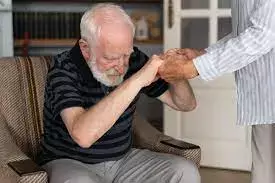- Home
- Medical news & Guidelines
- Anesthesiology
- Cardiology and CTVS
- Critical Care
- Dentistry
- Dermatology
- Diabetes and Endocrinology
- ENT
- Gastroenterology
- Medicine
- Nephrology
- Neurology
- Obstretics-Gynaecology
- Oncology
- Ophthalmology
- Orthopaedics
- Pediatrics-Neonatology
- Psychiatry
- Pulmonology
- Radiology
- Surgery
- Urology
- Laboratory Medicine
- Diet
- Nursing
- Paramedical
- Physiotherapy
- Health news
- Fact Check
- Bone Health Fact Check
- Brain Health Fact Check
- Cancer Related Fact Check
- Child Care Fact Check
- Dental and oral health fact check
- Diabetes and metabolic health fact check
- Diet and Nutrition Fact Check
- Eye and ENT Care Fact Check
- Fitness fact check
- Gut health fact check
- Heart health fact check
- Kidney health fact check
- Medical education fact check
- Men's health fact check
- Respiratory fact check
- Skin and hair care fact check
- Vaccine and Immunization fact check
- Women's health fact check
- AYUSH
- State News
- Andaman and Nicobar Islands
- Andhra Pradesh
- Arunachal Pradesh
- Assam
- Bihar
- Chandigarh
- Chattisgarh
- Dadra and Nagar Haveli
- Daman and Diu
- Delhi
- Goa
- Gujarat
- Haryana
- Himachal Pradesh
- Jammu & Kashmir
- Jharkhand
- Karnataka
- Kerala
- Ladakh
- Lakshadweep
- Madhya Pradesh
- Maharashtra
- Manipur
- Meghalaya
- Mizoram
- Nagaland
- Odisha
- Puducherry
- Punjab
- Rajasthan
- Sikkim
- Tamil Nadu
- Telangana
- Tripura
- Uttar Pradesh
- Uttrakhand
- West Bengal
- Medical Education
- Industry
Can poor olfaction lead to faster decline in mobility among older adults?

Researchers have found that poor olfaction may signify impaired mobility in older adults. The study has been published in JAMA Otolaryngology-Head & Neck Surgery.
Decreased mobility is a hallmark of aging. Olfactory dysfunction is common in older adults and may be associated with declines in mobility. A study was done to determine whether poor olfaction was associated with faster declines in mobility in older adults. This cohort study included 2500 participants from the Health, Aging, and Body Composition Study. Participants completed the Brief Smell Identification Test during the year 3 clinical visit (1999-2000) and were followed for up to 7 years. Data analysis was conducted between January and July 2023. Results The primary analyses included 2500 participants Multivariate-adjusted analyses showed that poor olfaction was associated with slower walking speed at baseline and a faster decline over time. Taking the 20-m usual walking test as an example, compared with participants with good olfaction, the speed at baseline was 0.027 (95% CI, 0-0.053) m/s slower for those with hyposmia and 0.034 (95% CI, 0.005-0.062) m/s slower for those with anosmia. Longitudinally, the annual decline was 0.004 (95% CI, 0.002-0.007) m/s/year faster for those with hyposmia and 0.01 (95% CI, 0.007-0.013) m/s/year faster for those with anosmia. Similar results were obtained for the 20-m and 400-m fast walking tests. Further, compared with participants with good olfaction, the odds of being unable to do the 400-m test were 2.02 (95% CI, 1.17-3.48) times higher for those with anosmia at the year 8 visit and 2.73 (95% CI, 1.40-5.35) times higher at year 10. Multiple sensitivity and subgroup analyses supported the robustness and generalizability of the findings. The results of this cohort study suggest that poor olfaction is associated with a faster decline in mobility in older adults. Future studies should investigate underlying mechanisms and potential health implications.
Reference:
Yuan Y, Chamberlin KW, Li C, et al. Olfaction and Mobility in Older Adults. JAMA Otolaryngol Head Neck Surg. Published online January 18, 2024. doi:10.1001/jamaoto.2023.4375
Keywords:
poor olfaction, impaired mobility, older adults, JAMA Otolaryngology–Head & Neck Surgery.
Dr. Shravani Dali has completed her BDS from Pravara institute of medical sciences, loni. Following which she extensively worked in the healthcare sector for 2+ years. She has been actively involved in writing blogs in field of health and wellness. Currently she is pursuing her Masters of public health-health administration from Tata institute of social sciences. She can be contacted at editorial@medicaldialogues.in.
Dr Kamal Kant Kohli-MBBS, DTCD- a chest specialist with more than 30 years of practice and a flair for writing clinical articles, Dr Kamal Kant Kohli joined Medical Dialogues as a Chief Editor of Medical News. Besides writing articles, as an editor, he proofreads and verifies all the medical content published on Medical Dialogues including those coming from journals, studies,medical conferences,guidelines etc. Email: drkohli@medicaldialogues.in. Contact no. 011-43720751


